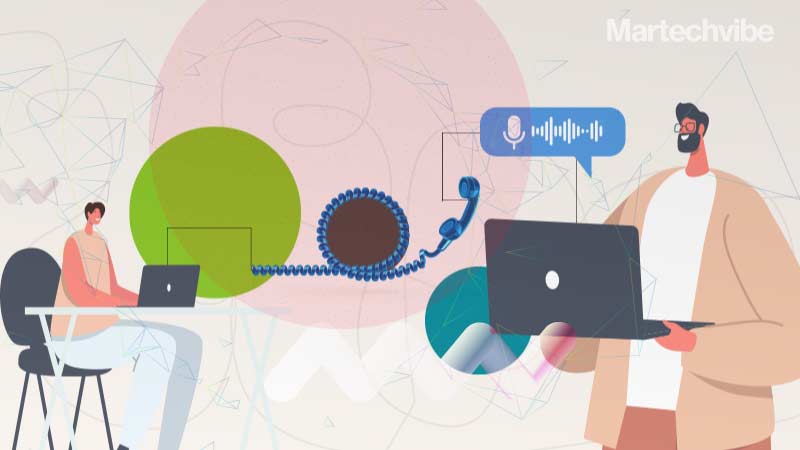How Can Service Providers Avoid CX Disaster
In Forrester’s latest report on the future of the European market, there’s a concerning prediction. In 2023, the analyst firm estimates that one in five customer experience (CX) programmes will disappear if they cannot prove their return on investment (ROI). At the same time, ten per cent of projects will become stronger than ever. Here, […]
Topics

In Forrester’s latest report on the future of the European market, there’s a concerning prediction. In 2023, the analyst firm estimates that one in five customer experience (CX) programmes will disappear if they cannot prove their return on investment (ROI). At the same time, ten per cent of projects will become stronger than ever. Here, Hamish White, CEO of telecoms digital CX expert at Mobilise, shares his insight into how service providers can avoid CX disasters.
At first glance, Forrester’s claims are a cause for concern for CX leaders. Its prediction would mean CX business functions that cannot prove their ROI would be split up, absorbed elsewhere or wound down completely. But is this the case? While CX is not a direct revenue generator, it has value to a business’s overall function for telecoms service providers (SPs).
Growing expectations
Tech giants like Apple, Amazon and Meta have set the CX standards high for every business, regardless of their size. What’s more, with the growing number of over-the-top service providers and digital-native companies, the CX landscape is becoming tougher to navigate for telcos following traditional business models and strategies.
Service providers (SPs) need a better track record among consumers regarding customer service, and there’s a longstanding perception in the industry that CX yields no value regarding market success. SPs are used to competing by offering low prices, fast delivery and widespread coverage. So in consumers’ minds, poor CX is the norm and expectation from their telecoms SP. All it takes is for an SP to take hold of this and change the norm to force the hand of the industry and create the new elevated standard.
With more and more virtual interactions, it’s digital CX, in particular, that holds importance for SPs. Digital experiences allow telcos to benefit from advantages like higher average revenue per user (ARPU), customer loyalty and user retention. Providing a service isn’t enough anymore — it has to be executed to an exceptional standard across every business layer. But what does this look like?
Digital is key
From a consumer standpoint, all digital interactions are judged using the same measures. The seamless daily digital interactions a consumer has with Big Tech set the standard for smaller providers too. Whether browsing for products, contacting support, or updating your account, seamless experiences define digital CX. But let’s start at the beginning — onboarding new customers.
Onboarding is the first meaningful interaction most consumers will have with their SP, and like anything else, this first impression counts. A clunky onboarding process with several steps that require a lot of input from the customer will surely put a bad taste in a customer’s mouth from the beginning. This isn’t just a presumption, though. It’s backed up by data. According to a 2022 report from Zendesk, 61% of customers will defect to a competitor after just one bad experience. And if they have another poor interaction, 76% will churn. This is 22% more than the number of consumers going elsewhere in 2021.
What we can take from this is that CX positively impacts retention and satisfaction. So proving the direct ROI of CX isn’t necessarily the right action to take. SPs could halt their CX efforts and see how that might impact churn, but doing so could risk a huge negative impact on their operations. Instead of questioning CX’s value, SPs should focus on ensuring their CX is up to standard.
Seamlessness at every stage
Getting CX right requires a successful digital transformation. It’s well documented that around 70% of digital transformations across any industry fail. So SPs need to be sure that their strategy and investments will generate success to ensure a positive impact on retention and, ultimately, revenue.
Continuing the example of onboarding, in the past, this has materialised as an in-person interaction to ensure the SIM card and identity verification processes are completed. But in the digital world, this is completed using eSIMs, which involve downloading network credentials over the air to activate subscriptions remotely. However, it’s more complex than adopting eSIM technology. Unfortunately, many SPs take an approach that offers a lower quality of CX than even in-person onboarding.
A well-designed, completely digital onboarding journey that allows customers to activate subscriptions directly from within one application in seconds. With streamlined onboarding, this produces a simple, intuitive customer experience that starts things off with every customer on the right foot.
Embarking on a digital transformation with little knowledge of how to do it is daunting. Mobilise offers a digital and fully customisable BSS platform — HERO — which is designed to support SPs to implement digital CX quickly, easily and cost- efficiently. It’s proven to improve SPs’ Net Promoter score (NPS) by 25%, helping to keep customers onside and revenue streams flowing. HERO also allows SPs to promote complementary services to generate incremental ARPU, to increase revenue from existing customers.
For SPs or any business looking to thrive in the increasingly digital world means having a strong CX strategy and the right technology in place. So, saying CX is dead couldn’t be further from the truth. It’s alive and kicking and ready to continue transforming businesses in 2023 and beyond.
If you liked reading this, you might like our other stories
Where the Banks have No Walls
Can Marketers Help Consumers Navigate Through Higher Prices?





